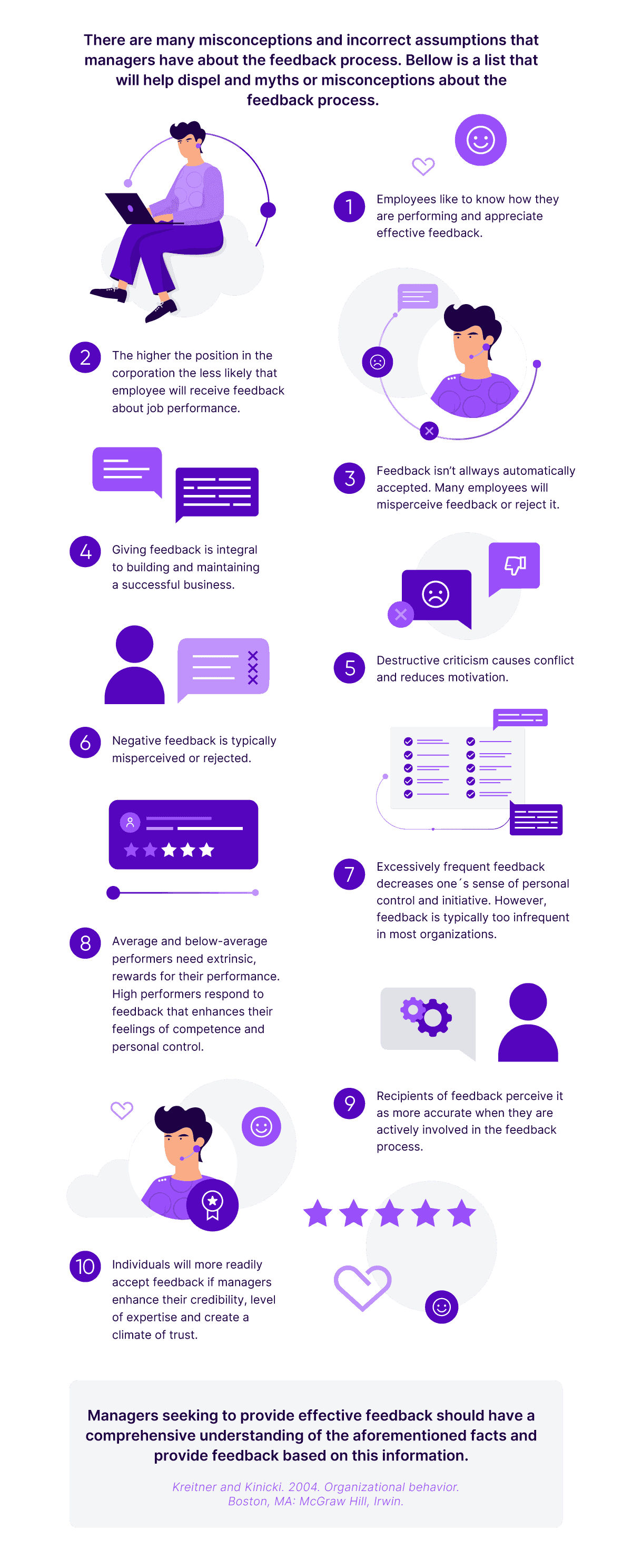
10 Feedback Facts for Managers
Providing effective feedback can be a difficult process, but it shouldn’t be. Managers seeking to improve how they give feedback should develop an understanding of how to effectively administer feedback and identify sings that their feedback system isn’t producing the desired results in the workplace.
There are many misconceptions and incorrect assumptions that mangers have about the feedback process. Below is a list that will help dispel any myths or misconceptions about the feedback process.
Employees like to know how they are performing and appreciate effective feedback.
Giving feedback is integral to building and maintaining a successful business.
Feedback isn’t always automatically accepted. Many employees will misperceive feedback or reject it.
Individuals will more readily accept feedback if managers enhance their credibility, level of expertise and create a climate of trust.
Negative feedback is typically misperceived or rejected.
Excessively frequent feedback decreases one’s sense of personal control and initiative. However, feedback is typically too infrequent in most organizations.
Average and below-average performers need extrinsic rewards for their performance. High performers respond to feedback that enhances their feelings of competence and personal control.
Recipients of feedback perceive it as more accurate when they are actively involved in the feedback process.
Destructive criticism causes conflict and reduces motivation.
The higher the position in the corporation, the less likely that that employee will receive feedback about job performance.
Managers seeking to provide effective feedback should have a comprehensive understanding of the aforementioned facts and provide feedback based on this information.



